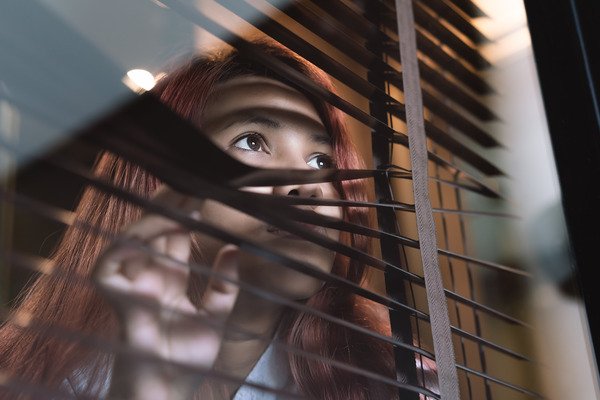
Having many, good-quality friendships positively influences our self-esteem, but it seems that this relationship is also bidirectional. That is, if we value ourselves very positively, we will be more likely to have good friends.
The way in which self-esteem influences when making friends is very varied, although we can already anticipate that if this is low, the friends we make will not last long or, in other cases, they will remain by our side only to take advantage of us. .
Today we are going to find out How high and low self-esteem influences when making friends and what are the aspects that intervene in our friendship relationships that tell us that we value ourselves little.
How does our level of self-esteem influence us when making new friends?
In an ideal relationship, both you and your friends know each other’s value and treat each other with mutual respect and affection. Friends are a fundamental part of our lives, people who can provide us with well-being and support.
The relationship between friends and self-esteem is bidirectional That is, having good friends improves our self-esteem and, also, valuing ourselves positively makes us enjoy better friendships.
If we have self-esteem problems, it is most likely that the quality of our friendships is not adequate. Just like the saying goes, “God raises them and they flock together.” People with low self-esteem attract others who also have the same problem, emerging a relationship in which, instead of support, we find toxicity, reproaches, submission and dominance and lack of respect. If no one values themselves, the less they will value others.
It may also happen that only one of the two friends has low self-esteem. Two things can happen here, one good and one not so good.
It may happen that we are people with little appreciation for ourselves, but our friends do value us and help us have a better vision of ourselves. But, Sadly, it can happen that far from helping us and making us feel better, our “friends” take advantage of our insecurity and take advantage of us.
Signs of low self-esteem when making friends
To understand how self-esteem influences when making friends, we are going to start by seeing what the signs are about friendship relationships when it is very low.
Self-esteem is a cognitive aspect but, Like everything our thoughts are, they influence our emotions and, consequently, our behavior If we think negative thoughts, we are more likely to behave in a dysfunctional and maladaptive way compared to what we do when we think positive thoughts.
Since self-esteem is synonymous with self-worth, respect for oneself and appreciation for how we are, our opinion of ourselves will strongly influence our mood and, also, our behavior, which will be evident when trying to make friends. . If we value ourselves well, we will be more selective with our friendships, and if we value ourselves poorly, we will not be so selective
Among the indicators that can be seen when trying to make friends that are directly related to having low self-esteem we can find:

1. Extreme dependency
Low self-esteem affects the way you interact with others. Each friendship has its natural pace of progress, requiring a different speed depending on the person you have met. There are boys and girls who become our best friends in a matter of very little time, while others find it more difficult, they need time and create a space of trust and security to dare to take the step and use that word that for some It sounds very strong to you: friend.
When you have low self-esteem, the moment you meet someone new you feel so insecure that you are very afraid of losing the new friendship. To avoid this, the person with this self-esteem problem sticks like a glue to his new friend, tries to spend a lot of time with him, almost without letting him escape. The problem is that if the other person starts to feel uncomfortable with this behavior, which is quite likely, they will end up running away. Codependency and clinginess are repellent to potential friends.
This extreme codependency when starting a relationship will end up turning into a deep fear of feeling rejection again, so intense that we will dread meeting someone again. That is, tired of meeting people, staying with them for a while, scaring them and once again feeling the bitter interpersonal rejection, we will prefer not to go out in search of new friends and we will not dare to try to make friends again.
2. Feeling that we don’t deserve to have friends
Self-esteem problems can inhibit us from trying to make friends by believing that we are not worth enough to have friends. If you think that you don’t deserve to have good friends, it is possible that, when someone invites you to meet up for coffee or go to their party, let’s reject the invitation for the simple fact of thinking that we will end up boring him, he will dislike us or he will simply see that we do not deserve to be by his side
Insecurity, the emotion typical of low self-esteem, can be so intense that we even mistrust the nicest, nicest, and most pleasant person in the world. We think it’s too nice that someone can feel interest in us, and we think that they are either kidding us or that they are simply wrong. As a result of this, you end up stopping trying to meet new friends and reject any opportunity they give you to start a new friendship.
- Related article: “Pessimistic personality: what 6 traits characterize it?”
3. Low self-esteem and toxic relationships
One must be careful with the types of friendships one establishes. You may be surrounded by people who are not going to do you any good, but you continue hanging out with them because you find it difficult to find new friends.
If you think that you don’t deserve to have good friends, it is likely that you will end up staying with people who treat you badly, people who take advantage of you Since you don’t believe you can aspire to more, you allow yourself to be trampled by those who claim to be your friends but who are actually your emotional abusers.
To escape this suffocating trap that is having toxic friendships, it is necessary to stop for a second and look objectively at the type of friendships we have. Do your friends make you feel bad? Among the things that toxic “friends” do are:
- They verbally abuse you, mocking you and calling you disrespectful names.
- They criticize you constantly.
- They don’t allow you to speak: they don’t value your opinion or take your wishes into account.
- They only remember you when they need something.
- If you need anything from them, they are simply not available.
To confront this unfair situation, try to distance yourself from these types of people and look for others It will take you a while to make new friends, but it won’t be too long, and in fact sooner or later you will end up surrounded by better friends, people who will feed your self-esteem with positive and motivating comments, valuing you just as you are.
- You may be interested: “The 6 main types of toxic relationships”
4. High self-esteem and friendship relationships
There are several characteristics that we can find in friendship relationships that are worthwhile. These types of relationships are nourished and consolidated thanks to the fact that the self-esteem of its members is not on the ground
If there is someone who has self-esteem problems, the other members of the group of friends support them, try to encourage them and make them see that there are many good things that make up their person.
In friendship relationships where its members have good self-esteem we see:
- The relationship is based on mutual affection and respect.
- Rivalry is low and support is high.
- There are more positive interactions than negative ones.
- Disagreements do not call into question the relationship.
- The apologies are sincere and heartfelt on both sides.
Having high self-esteem also implies high esteem for others. Arrogance, vainglory and egocentrism are often confused with high self-esteem, but in reality it is not genuine self-esteem
True self-esteem involves respecting and valuing oneself, but keeping in mind that we are not perfect or superior to others, that each one has their strengths and weaknesses. People with truly high self-esteem make the people around them feel good too.








